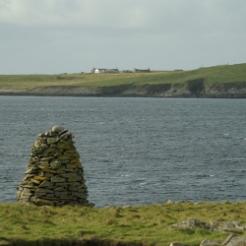The Office for the Scottish Charity Regulator has received 68 objections to the proposed reorganisation of one of Scotland's largest charities, which would replace elected councillors acting as trustees with non-elected board members.
A summary of the objections to the re-organisation of the Shetland Charitable Trust's board has been published by OSCR with the majority of objections expressing concern about the proposal to select eight independent trustees to a 15-person board.
The Shetland Charitable Trust is a charity "set up to benefit the inhabitants of Shetland" and is predominantly a grantmaker. But with a board of 23 trustees including 21 elected local councillors, it was accused of subsidising the council and warned by OSCR that it may have its accounts frozen and its trustees suspended if it was found that there was a "systemic conflict of interests" within the organisation.
After a specially-commissioned report by Roy Martin QC recommended the charity re-structure in order to retain its charitable status, the charity conceded its long-running battle with OSCR in May last year.
The Trust's proposed re-structure was put forward in January this year and if passed will see the board reduced from 23 to 15 trustees, eight of which will be non-elected independents.
The Shetland Charitable Trust has an annual income of £10.7m and assets in excess of £200m, making it one of Scotland's largest charities. The majority of compainants believe the charity should be run by elected representatives and raised concerns that councillors losing their seat or not standing at council elections could now put themselves forward to be selected as independent trustees.
The objections echo those of two of the charity's own trustees, Gary Robinson and Jonathan Wills, who in a letter to the Scotsman in August last year, said that, "The most important attribute for a public trustee is that he or she is trusted by the community to represent their interests when spending millions of pounds of public money a year."
Non-elected chair would have too much influence
In the proposed re-structure the chairman of the board would be an independent, who would have the power of final decision in the event of a equal vote between the trustees. The proposal suggests a quorum of six trustees, meaning that the chair's decision could regularly become the casting vote. OSCR advised that a "high percentage" of objections were based on this matter.
"The biggest concern was that decisions on major financial investments and decisions which could have long-term effects for the Shetland community could potentially be passed by only three trustees, leading to a decision being made by the Chair's casting vote. Virtually all objectors felt that a quorum of six is too low and could lead what was described as 'an unfair and unbalanced vote'," OSCR advised.
The regulator will now await response from the trustees to the objections before making a decision on the proposal before 19 October.









